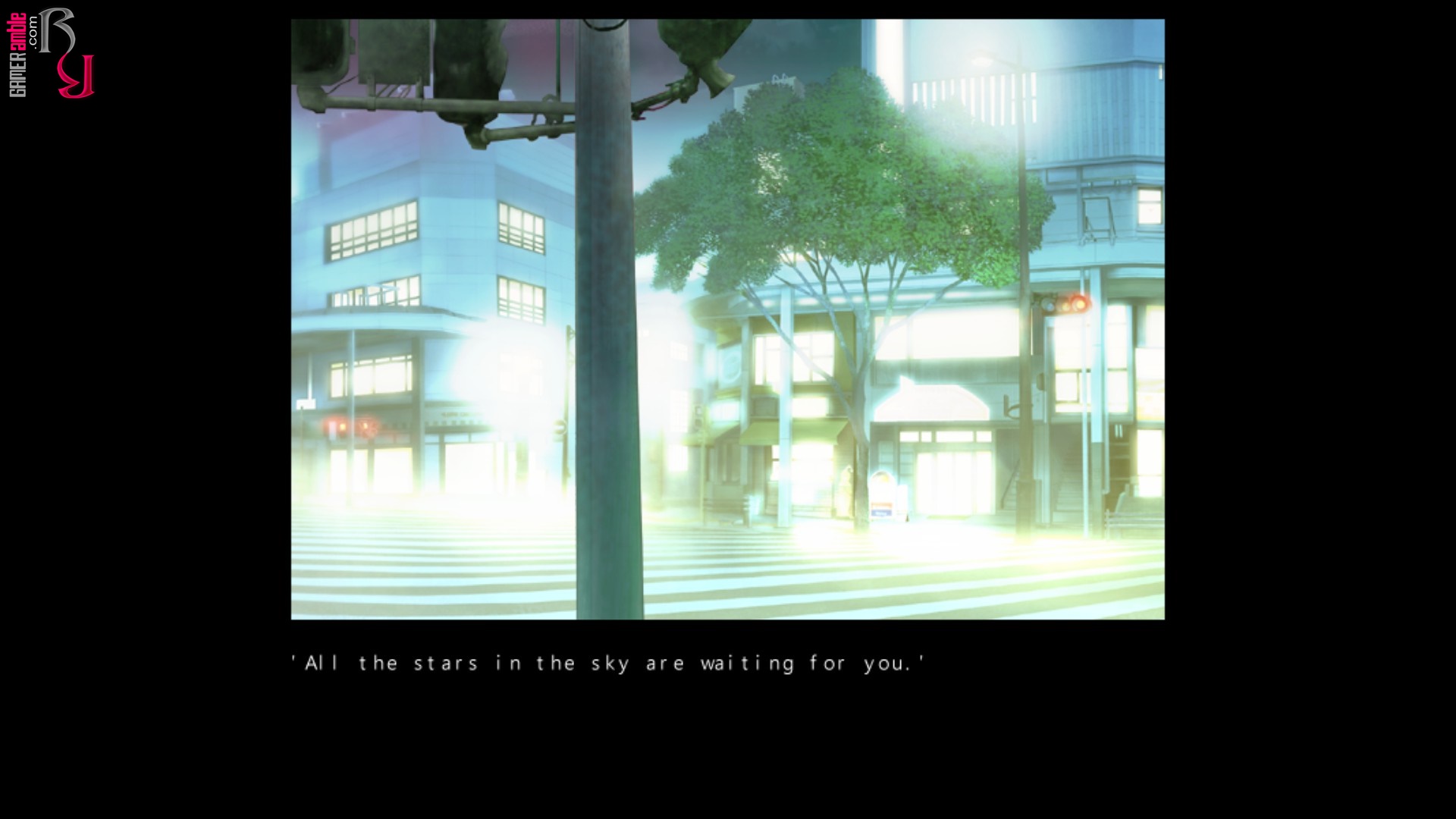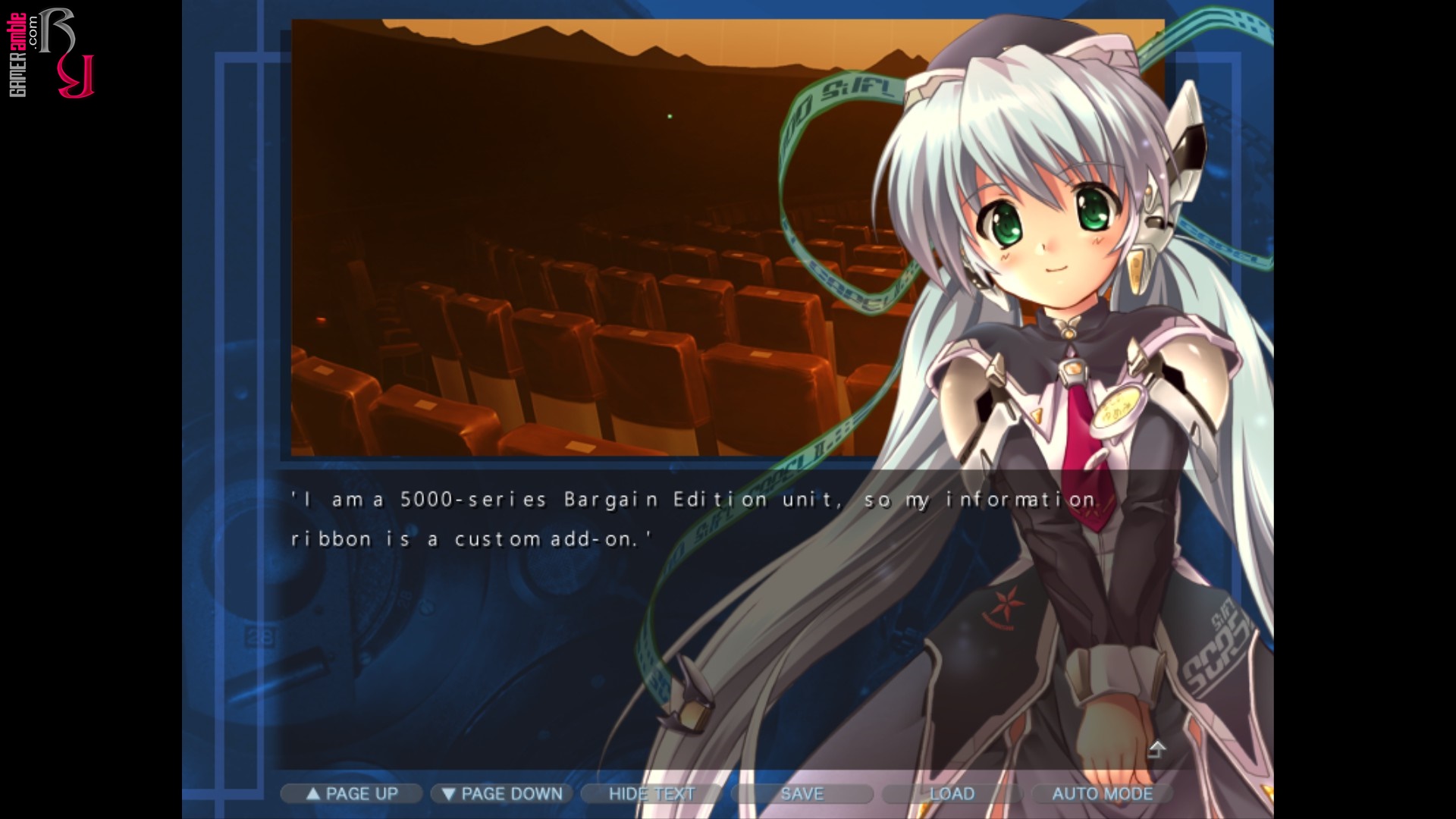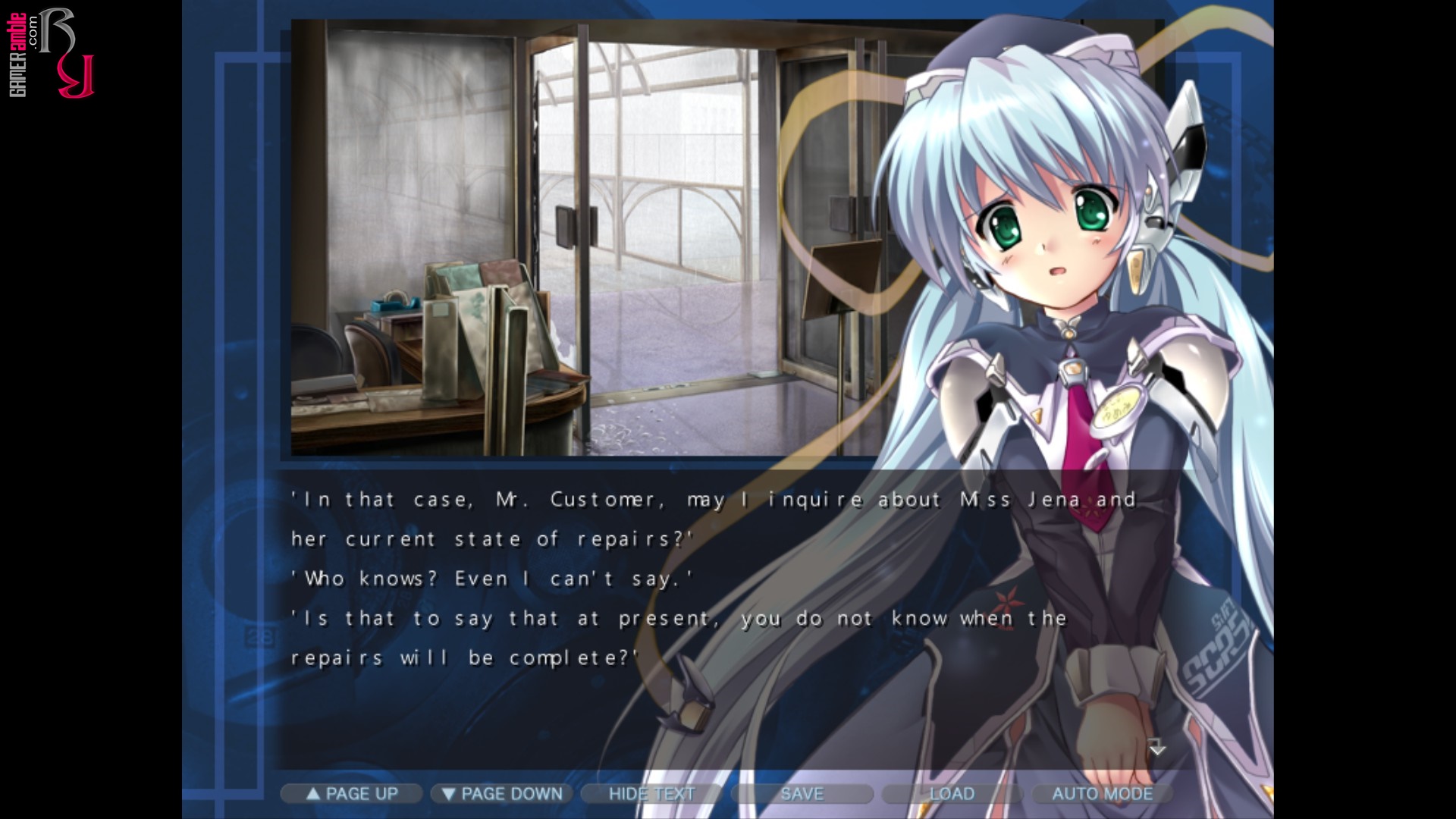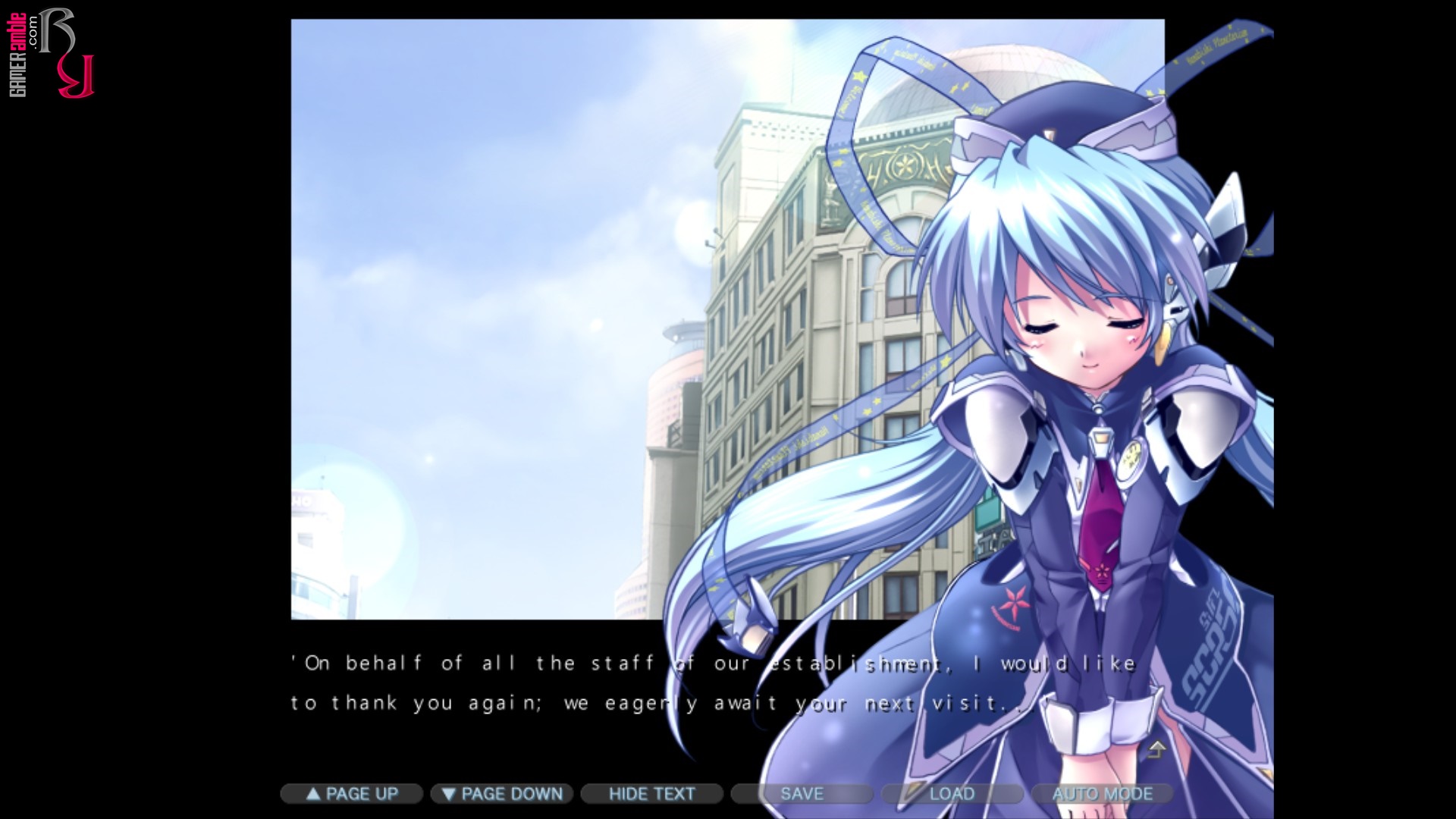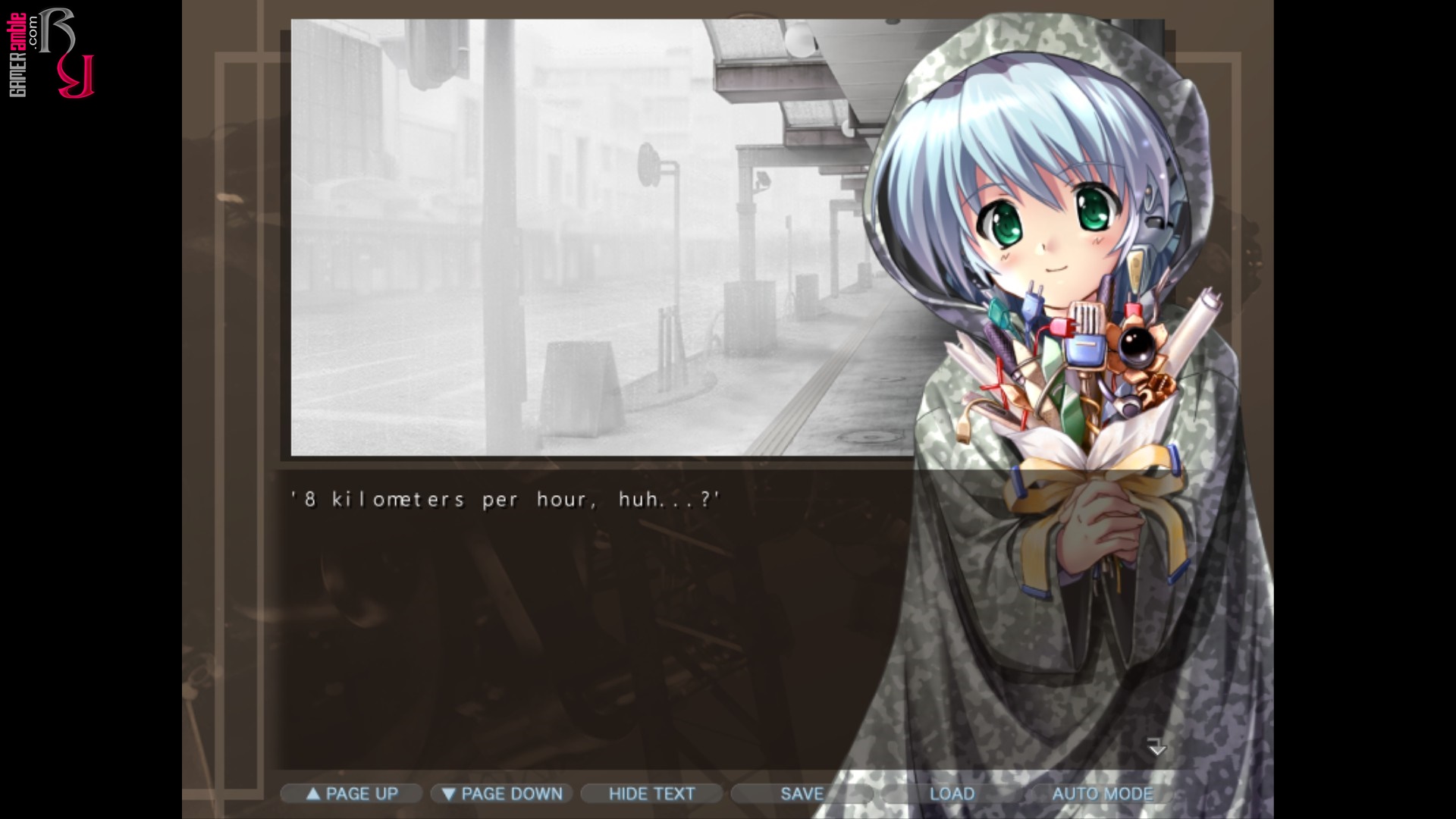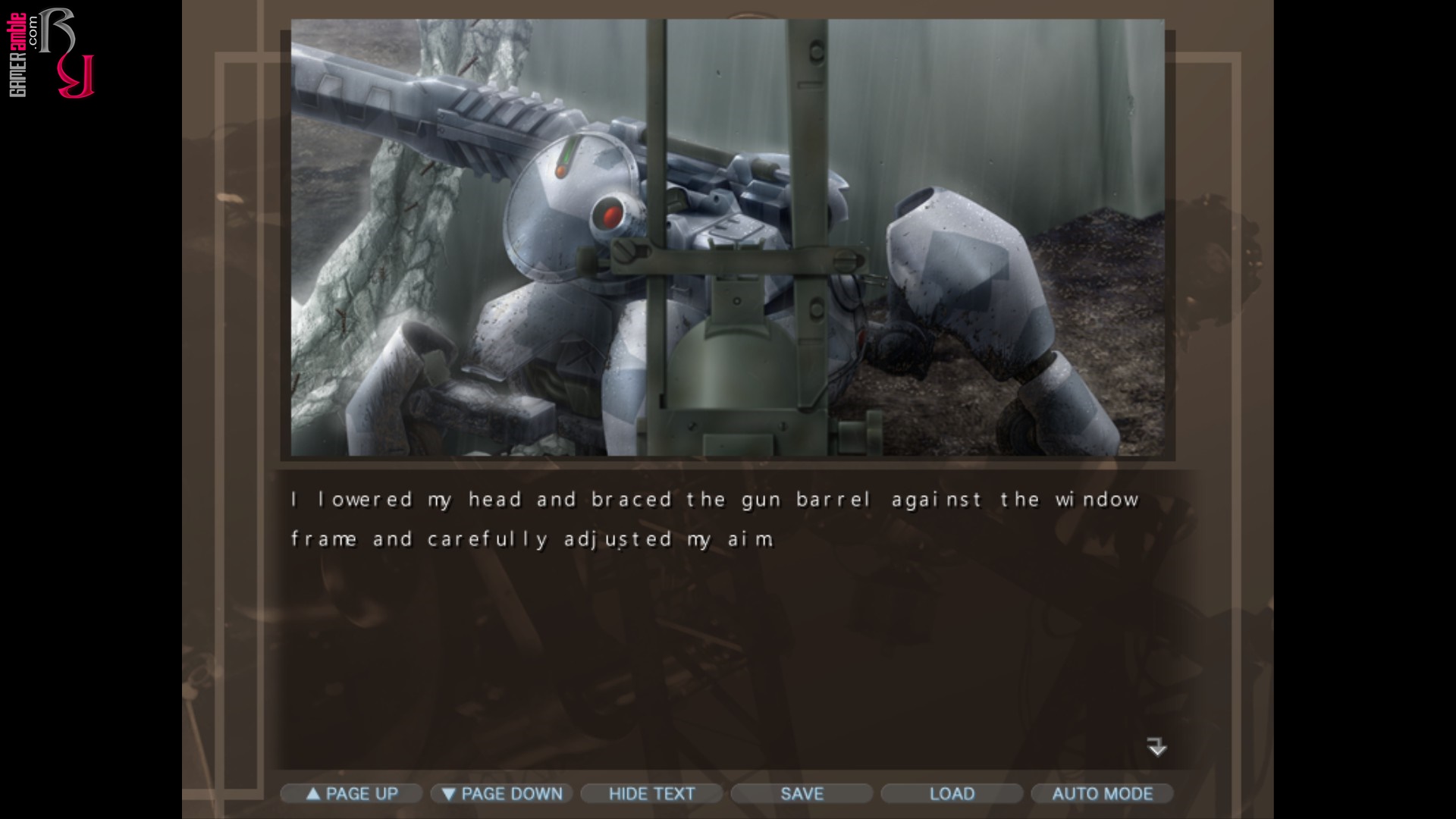planetarian ~the reverie of a little planet~
Developer: VisualArts/Key | Publisher: Sekai Project | Release Date: 2004 | Genre: Kinetic Novel | Website: N/A | Purchase: Steam
The Space Colonization Program was supposed to be one of mankind’s greatest accomplishments, but thirty years after its failure humanity is nearly extinct. While the wars that wiped out almost everyone are over the deadly Rain left in their wake continues falling. Planetarian opens with an unnamed “Junker” arriving at the dangerous ruins of what is called a “Sarcophagus City.” Like other Junkers, he makes a living scavenging from the ruins of civilization, but the pickings are slim and danger is always present in the form of automated war machines. After sneaking into the city, the Junker discovers what he believes to be a military installation, but in reality, it is a department store with a pre-War planetarium on the roof. It is here that he meets Hoshino Yumemi, a robot who has been waiting for the past 30 years for a customer to cross the doorstep and attend a show.
Planetarian: The Reverie of a Little Planet is a kinetic novel from Key, the game studio known for titles such as Clannad, Air, and Kanon. It was originally released in 2004, but it took a fair amount of time for it to reach Western shores with an official translation. Planetarian is a much shorter experience than other Key titles, but unsurprisingly still packs an emotional punch. The story is told from the perspective of the unnamed Junker who is quickly christened “Mr. Customer” by the friendly gynoid watching over the planetarium. The Junker is dismayed by the relentlessly optimistic robot who seemingly cannot grasp what has happened to the world outside the planetarium. Despite spending the past 30 years on her own, she remains convinced that her co-workers and customers will return. Unfortunately, the Junker knows that things are unlikely to ever return to normal in the post-apocalyptic wasteland.
Planetarian is split up into sixteen short chapters that chronicle the interaction between the Junker and Yumemi. Although initially annoyed by the constant talking of the robot, the Junker stays at the planetarium far longer than what is necessary or safe for him. Yumemi is eager to narrate the show for him, but unfortunately, the projector is broken and the Junker takes it upon himself to fix it. Since it is a kinetic novel, there are no choices to be made or different paths and the story leads to a single, tragic ending. Players who watch it on auto-play using the default settings will be looking at the credits in just under five hours, but those who prefer reading at a faster pace will complete it even sooner.
Since it is such a short experience there isn’t much more we can say about the story without spoilers, but players who are familiar with Key’s other titles should know what to expect. The writing for Planetarian is really good and despite only featuring the Junker and Yumemi there are plenty of memorable scenes. The visuals definitely show their age and Planetarian can’t hope to compete with modern titles that feature things like LIVE2D. Nevertheless, the static backgrounds and limited sprites adequately convey the message of the game. The soundtrack is as melancholic as one would expect considering the bleak nature of the game and both the Junker as well as Yumemi are fully voiced. The voice acting is in Japanese only, but there’s no mistaking the emotion involved. The controls are limited to pressing a button to advance the dialog, but as mentioned earlier, this can be set to auto for players who want to experience the game more like a movie.
Planetarian: The Reverie of a Little Planet is a great title, but it is short and something that most players will only want to experience once. Completing the game rewards players with a CG gallery and a music player, but there are no alternative routes or endings to explore. The story is rather bleak and while there are lighthearted moments and brief shimmers of hope, it’s not a title for people who like happy endings. It should also be noted that this version of the game is no longer available on Steam and has been replaced by Planetarian HD, which is the same title, but with slightly higher-resolution visuals.
System Requirements
- OS: Vista or higher
- Processor: 1.2 GHz Pentium 4
- Memory: 128 MB RAM
- Graphics: 800×600
- Storage: 500 MB available space


